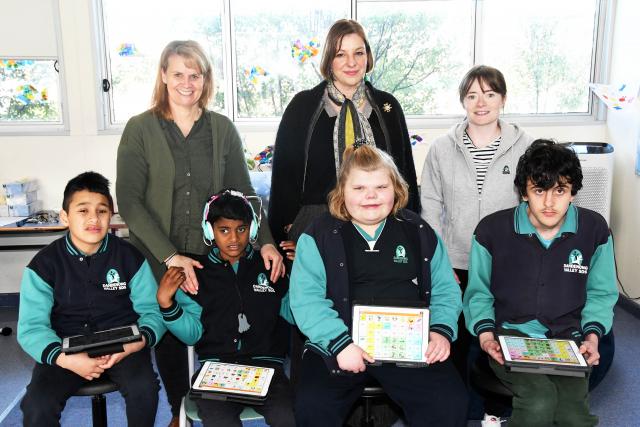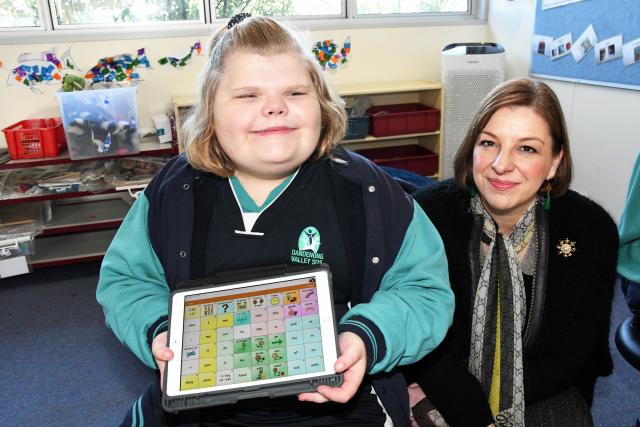
By Eleanor Wilson
Communication can be a daily struggle for non-verbal students, which is why not-for-profit State Schools’ Relief is hoping an investment in technology will make all the difference.
The Dandenong South based charity has partnered with Bank First and ASCA to secure $90,000 funding to invest in 423 iPads for non-verbal students at more than 90 specialist schools throughout Victoria.
Narre Warren’s Dandenong Valley Special Developmental School (SDS) is one school to benefit from the initiative, with 10 of its students receiving iPads to help them communicate both at school and at home.
Sue Karzis, CEO of State Schools’ Relief, explained that providing non-verbal children with an iPad enables them to have their own voice at all times.
“The iPads for non-verbal students is one of the most impactful programs that we run at State Schools’ Relief; to be able to provide a young person with the means to communicate their wants and needs is transformational,” she said.
“iPads give these students a voice, something that many of us take for granted.”
Dandenong Valley SDS speech pathologist Geraldine, who works closely with students at the school, agreed the iPads would have a profound impact on the students.
“If [the students] don’t have a communication system, it results in frustration and students can become withdrawn from learning,” she said.
“Every child has something to say or a contribution to make and without the iPads to allow them to express themselves, we can’t be sure what they need.
“What the iPad does is it adds to whatever communication the child already has; it’s a supportive tool to add to allow them to get message across and participate.”
She said communication skills should be a human right, regardless of intellectual ability.
“It all comes down to accessibility. Ultimately, communication isn’t just about their education, it’s an important life skill and something we try to teach them so they can be as independent as possible once they leave school,” Geraldine said.
“A lot of the time families with children with disabilities are faced with a lot of medical fees and they often can’t afford expensive electronics like iPads, which is why State Schools’ Relief is such an important initiative.”
Once the students receive the iPads, an app created to assist non-verbal individuals communicate will be downloaded, with hopes it can transform the students’ school and home lives.







